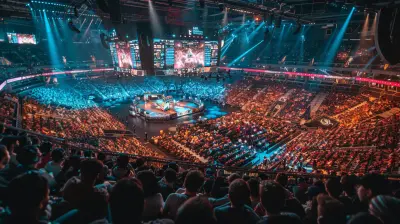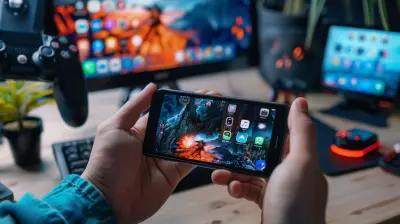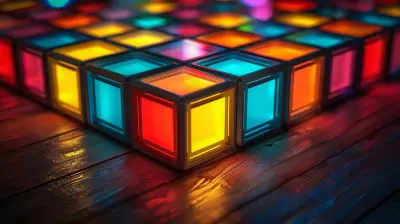How Composers Are Shaping the Future of Video Game Music
17 September 2025
Let’s be real for a second—gaming without great music? That’d be like watching a movie on mute or eating popcorn without salt. Music in video games isn’t just background noise anymore. It’s storytelling. It’s emotion. It’s direction. And at the heart of this sonic revolution? Composers.
They’re not just adding flavor to your favorite game—they’re building entire worlds, shaping your in-game experience, and pushing the limits of what game music can actually be. So buckle up, because we’re diving deep into how composers are not just scoring games, but literally scoring the future of gaming.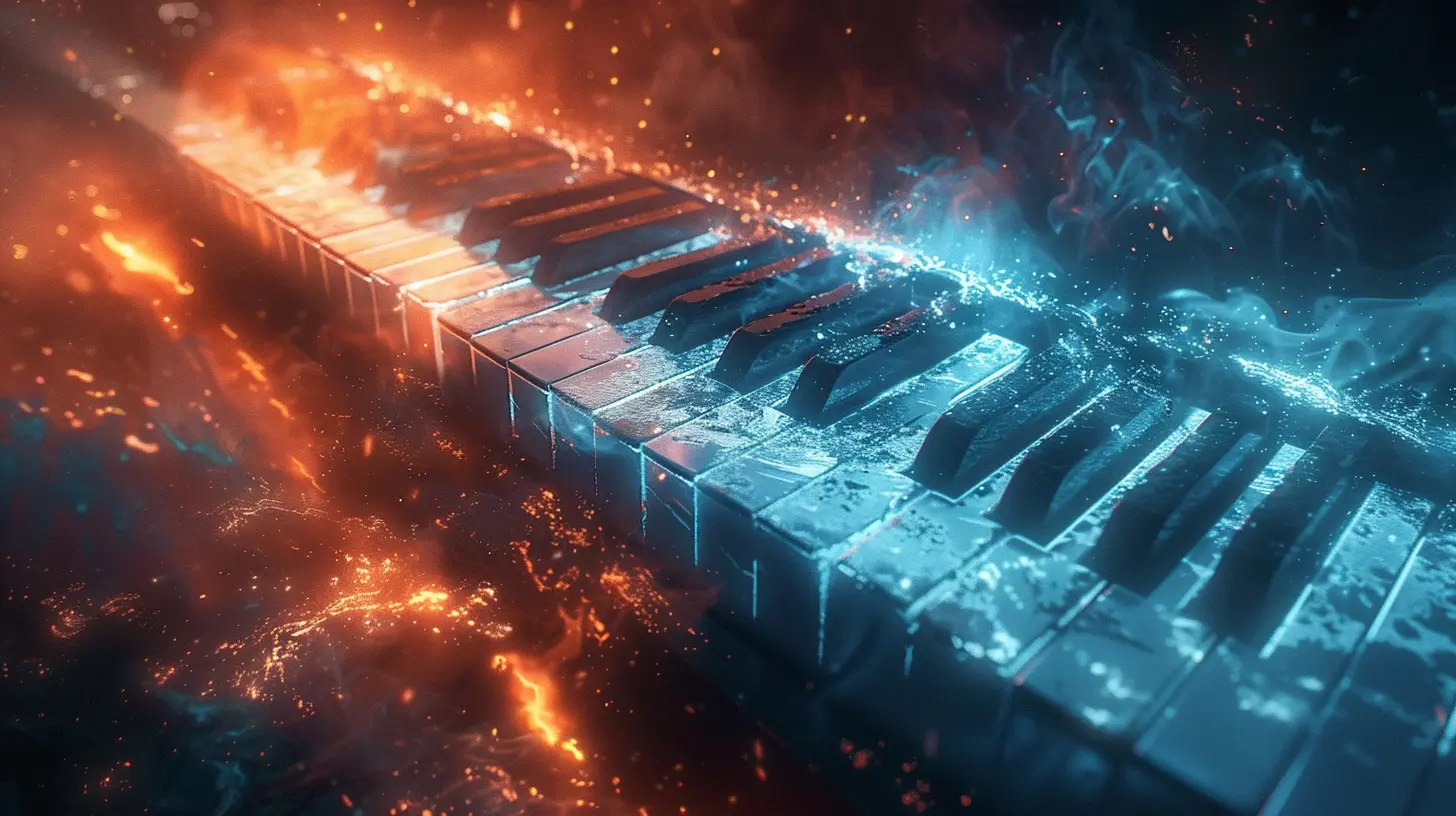
🎵 The Evolution of Video Game Music: From Beeps to Ballads
If you've played classic games like Pac-Man or Tetris, you know those catchy little beeps and blips. Not exactly tear-jerkers, right? But they got the job done for the time. Early game composers were working with massive constraints—think of trying to paint a masterpiece using only four colors.Fast forward to today, and you've got full-blown orchestras, live instruments, dynamic soundtracks, and even AI-generated soundscapes. Video game music has evolved from simple patterns to complex, emotionally rich compositions. And composers? They’ve gone from being behind-the-scenes techies to bona fide rockstars in the gaming world.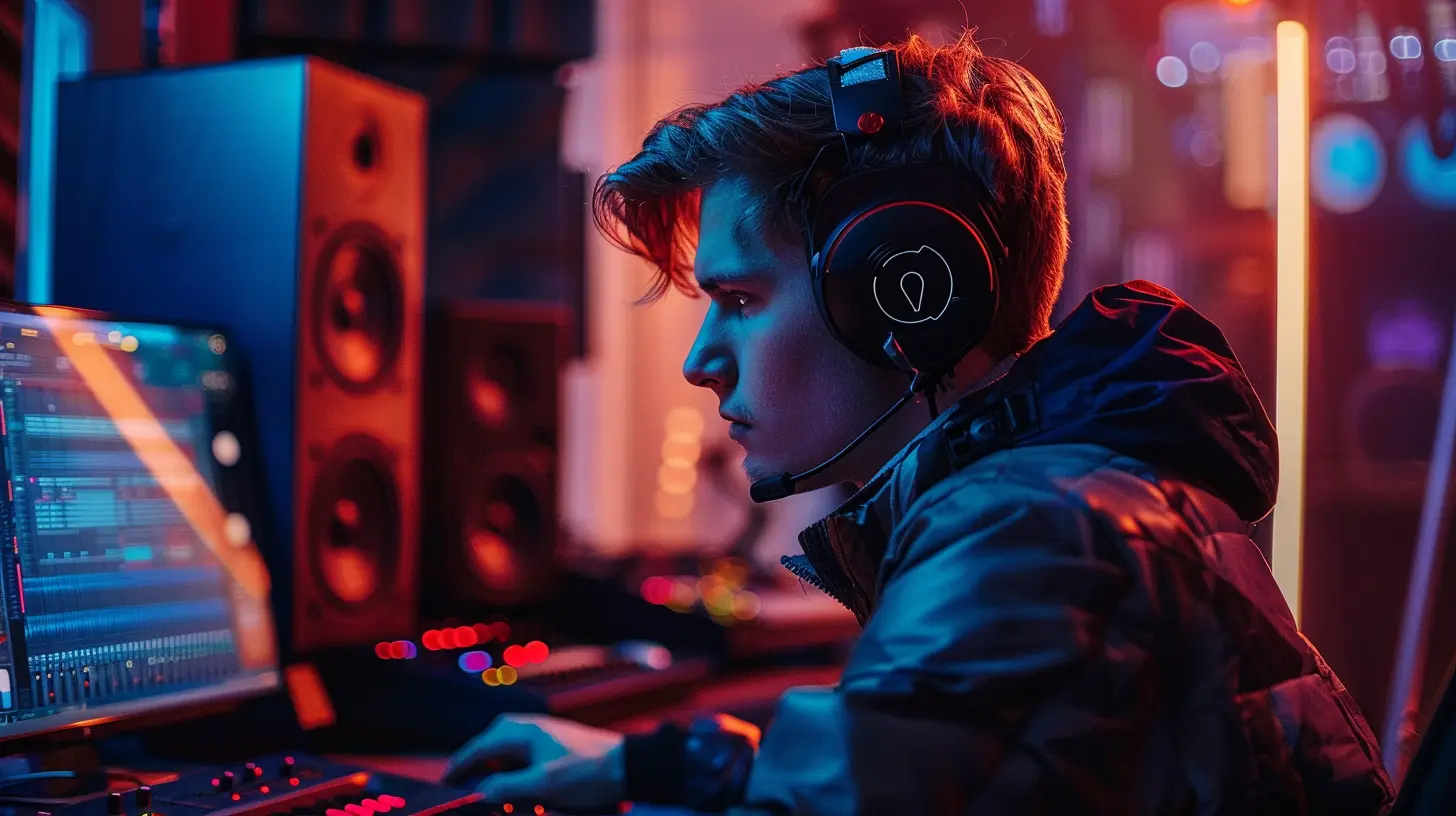
🎮 Music As Gameplay: An Invisible Controller
Let’s talk about how composers are basically your silent co-op partner. Music doesn’t just fill the silence—it tells you what’s happening, what’s about to happen, or what you should feel about it.Ever notice how the soundtrack ramps up when a boss enters the room? Or how the music chills out when you’re wandering through a peaceful village? That’s no accident. Composers work hand-in-hand with game designers to make music the emotional compass of a game.
And now, with tools like adaptive soundtracks, the music actually changes depending on your actions. That’s next-level stuff. Your game reacts to you—your decisions, your speed, your approach. It’s a personalized performance, and composers are the ones conducting it.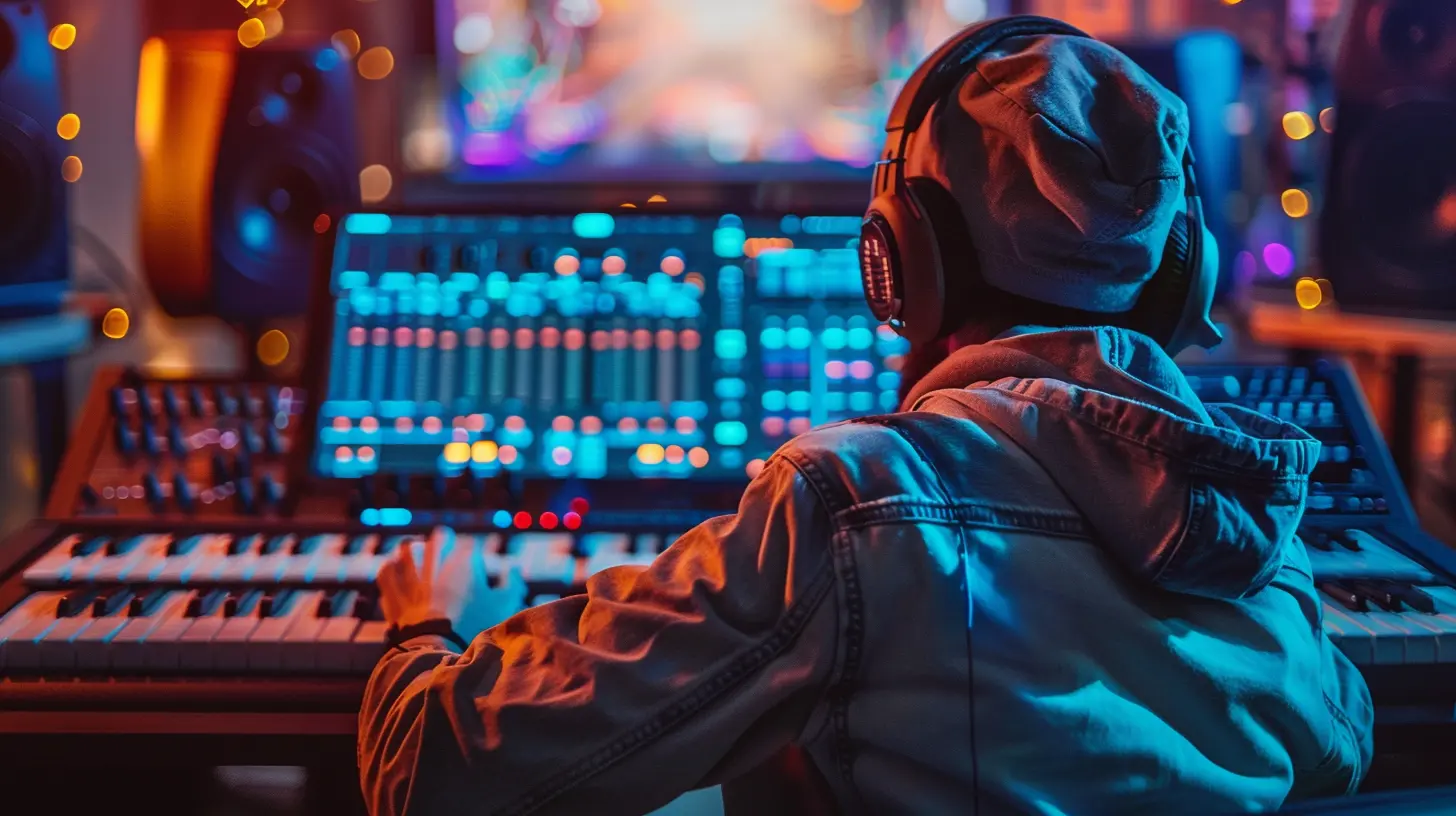
🧠 Dynamic Soundtracks: Music That Thinks on Its Feet
Here’s where things get futuristic. Dynamic or interactive music is one of the biggest innovations in gaming today—songs that literally shape-shift depending on what’s happening in the game.Composers are coding emotional intelligence straight into their music. They write layered tracks that switch tempo, intensity, or instruments based on your environment or progress in the storyline. It's like a DJ reading the room, but instead of a club, it’s your gameplay—and instead of a playlist, it’s a narrative.
A great example? The Legend of Zelda: Breath of the Wild. Walk around, and the music’s gentle. Engage an enemy? The tempo picks up. Explore a shrine? The soundscape changes completely. It’s seamless but powerful. And it's all thanks to brilliant composition and implementation.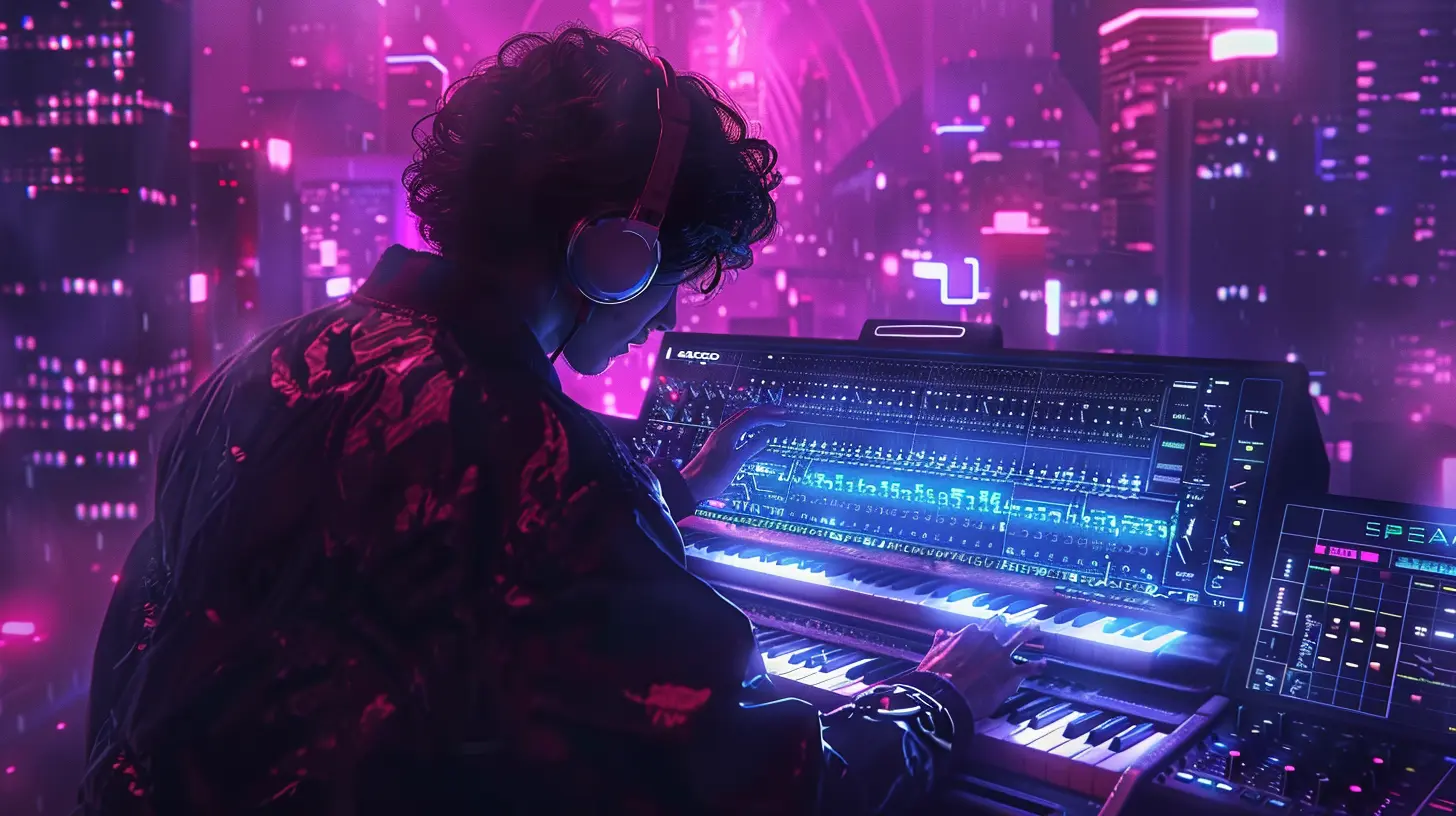
🌍 Globalization and Cultural Fusion in Game Audio
Composers today pull inspiration from every corner of the globe. From traditional Japanese shakuhachi flutes to African drums or Middle Eastern oud melodies, games are becoming cultural kaleidoscopes. Music is the universal language, and now more than ever, it's being used to tell diverse stories in games.Take Ghost of Tsushima for example. It’s set in feudal Japan, and its soundtrack reflects that with traditional instruments and themes. But it’s also modern and cinematic. This blending of cultures and times wouldn’t be possible without composers who know both—traditional musicology and modern digital production.
So not only are composers making killer soundtracks, but they’re also bridging cultures and deepening the authenticity of virtual worlds.
🎧 Emotions Unleashed: Composers As Digital Storytellers
Sometimes, music hits harder than any dialogue or cutscene ever could. A well-placed piano chord can break your heart faster than a plot twist. That’s the power of emotional scoring.Composers are experts in musical psychology. They know exactly which chords evoke sadness, tension, hope or nostalgia. In games like The Last of Us, the soundtrack does more storytelling than the actual characters at times.
Ever tear up during a game and not even know why? That’s likely because the music hooked you deep. Composers are emotional puppeteers, and they’re pulling strings you didn’t even know were there.
🎹 Tech-Savvy Maestros: Embracing AI, VR, and Beyond
Let’s not forget—composers today are part musician, part tech wizard.Many of them are coding their own musical systems, working with AI, or leveraging machine learning to create ever-evolving scores. They're not just writing notes—they’re building musical ecosystems.
In VR and AR games, where immersion is everything, music becomes even more essential. It has to be 360 degrees of emotion, perfectly synced with your every move. That’s no easy feat. It requires precision, adaptability, and some serious tech chops.
Some composers are even toying with procedural generation—music that’s created in real-time based on your actions. Imagine a soundtrack that no one else has ever heard before, shaped entirely by the way you played. Yeah, that’s happening.
📈 The Business of Music in Gaming: A Booming Industry
Here’s a fun fact—video game music is a multi-million-dollar industry. And with the rise of game streaming, composer recognition is skyrocketing.Soundtracks are getting full album releases, selling out vinyl editions, and being performed live by orchestras around the world. Events like Video Games Live and The Game Awards shine the spotlight directly on these unsung heroes.
For composers, this means a huge boom in opportunities—from indie games to triple-A blockbusters to music licensing deals. And for us gamers? It means more mind-blowing music with every new title.
🎤 The Rise of the Composer Celebrity
Let’s face it—composers are getting famous. And they totally deserve it.Legends like Koji Kondo (Mario, Zelda), Yoko Shimomura (Kingdom Hearts, Final Fantasy XV), and Bear McCreary (God of War) are now household names among gamers. These folks don't just write notes—they create legacy.
Tons of indie composers are gaining massive followings too, thanks to platforms like YouTube, Bandcamp, and even TikTok. Their music is streamed, studied, and celebrated across the globe.
In the past, game music might’ve been overlooked. Today? It’s front and center—and composers are finally getting their moment in the spotlight.
💡 What the Future Holds: Trends to Watch
So what’s next? Where are composers taking us?Here are a few game-changing (pun intended) trends already starting to take shape:
- AI-Composed Collaboration: Composers are using AI as a tool, not a replacement. Think of it like Iron Man’s suit—technology enhancing, not replacing, creativity.
- Fully Immersive Sound: Especially in VR, 3D audio will become the norm. Expect music that feels like it’s breathing around you.
- Player-Composed Soundtracks: Games may give players tools to compose or remix their own in-game music.
- Emotion-Driven Music AI: Some devs are working on music that picks up on your feelings via biofeedback (like heart rate!). Your heartbeat could actually trigger a major key change!
The future is wide open, but one thing is clear: Composers will be at the forefront of every single innovation.
🎮 Final Thoughts: Why This Matters to You
You might be thinking, “Okay, cool, music is awesome… but how does this actually impact me as a gamer?”Here’s the thing—game music is your emotional anchor. It's why a quiet moment in a story feels haunting, or why a final boss fight makes your palms sweat. It's why you can close your eyes and hum a tune from your favorite game 10 years later.
Composers are the architects of those feelings. They’re not just scoring music—they're scoring memories. And thanks to their passion, innovation, and creativity, the future of video game music is brighter (and louder) than ever.
So next time you boot up a game, do yourself a favor—pause for a second. Really listen. There’s a composer behind that moment, shaping your experience note by note.
all images in this post were generated using AI tools
Category:
Game SoundtracksAuthor:

Audrey McGhee
Discussion
rate this article
2 comments
Aubrey Jones
Absolutely love how composers are elevating game soundtracks! 🎶 Their creativity not only enhances gameplay but also shapes unforgettable experiences. Here’s to a future filled with epic tunes and adventures!
December 22, 2025 at 5:54 AM
Fleur Franco
Music evolves; games thrive with innovation!
September 19, 2025 at 4:30 AM

Audrey McGhee
Absolutely! Composers are driving that innovation, creating immersive soundscapes that elevate gameplay and enhance storytelling.
